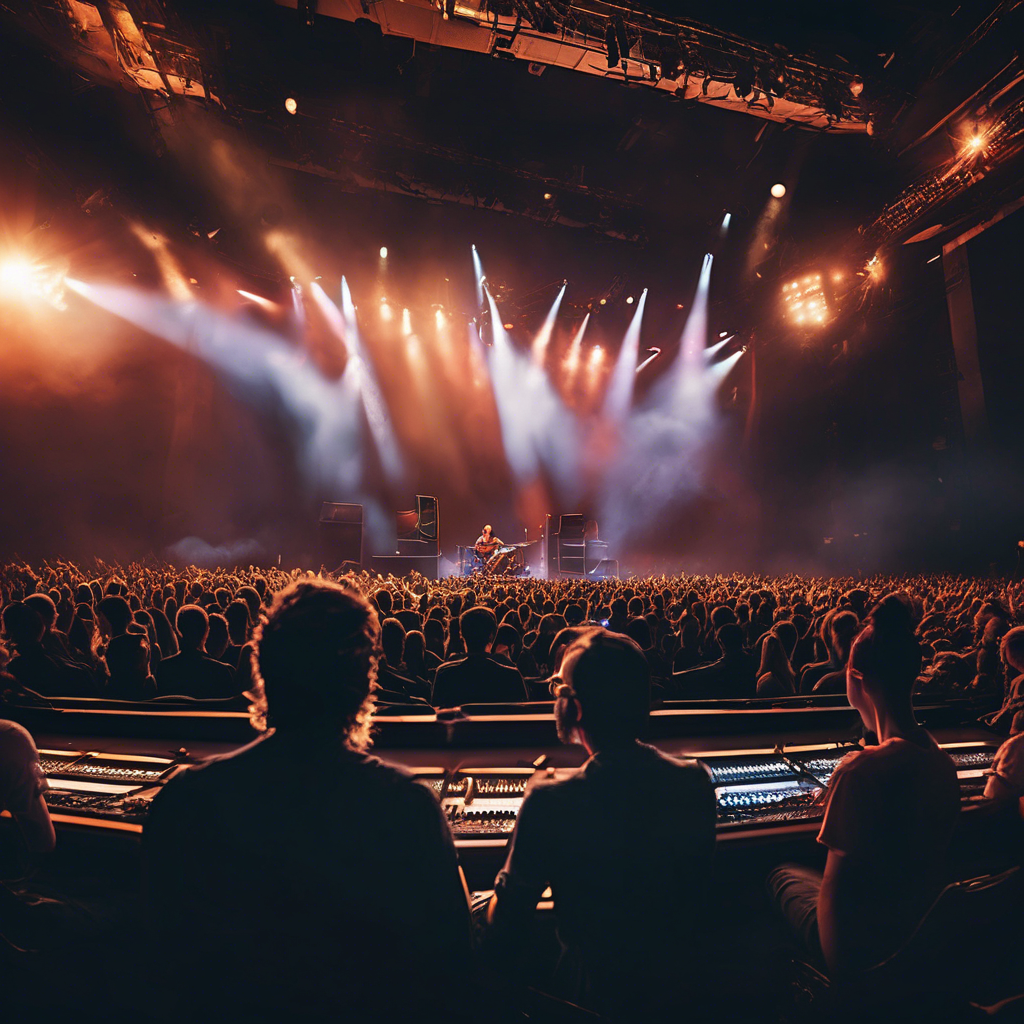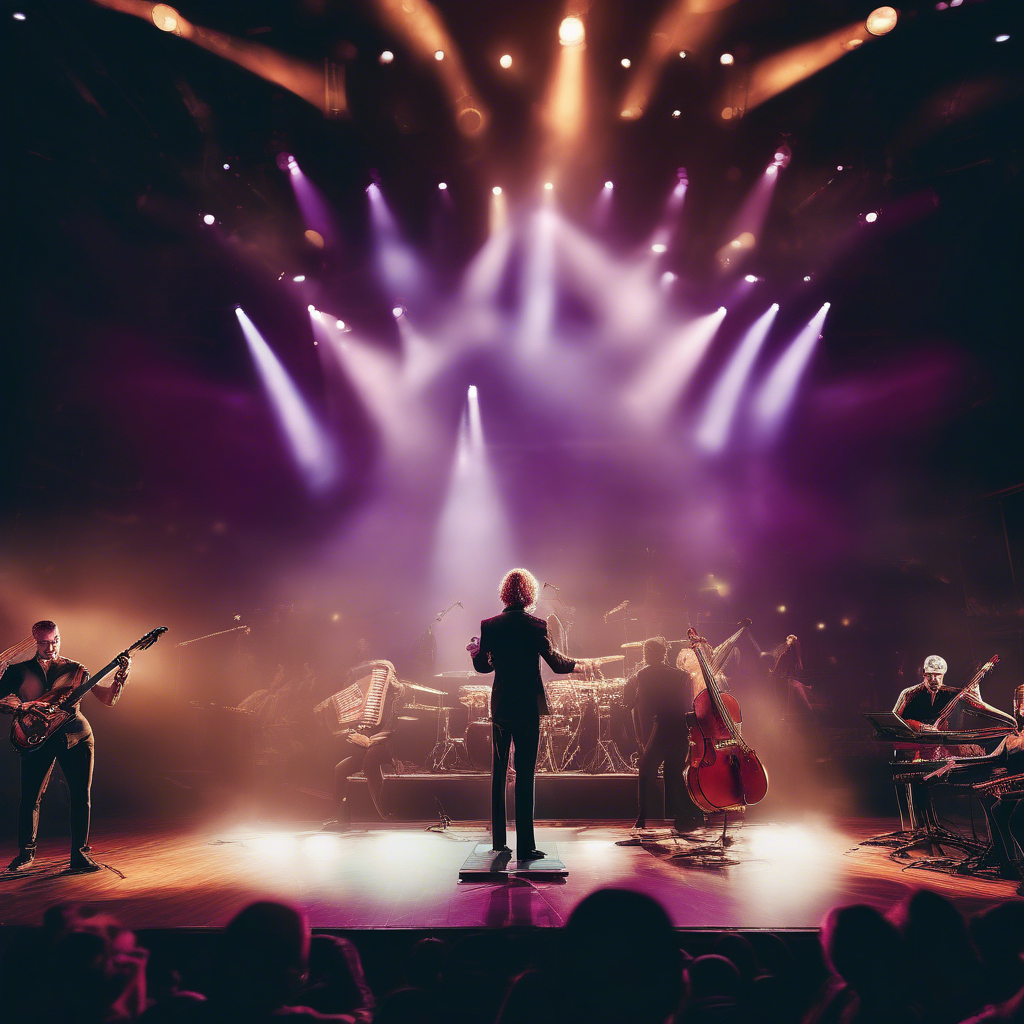Virtual Concerts: Redefining Live Entertainment in a Digital Era

In an age where technology permeates every aspect of our lives, the entertainment industry is undergoing a seismic transformation. Virtual concerts are at the forefront of this digital revolution, offering fans worldwide unprecedented access to live performances. With the advent of virtual reality concerts and advanced streaming technologies, music enthusiasts can now enjoy an immersive experience from the comfort of their homes.
The significance of this shift cannot be overstated. As traditional live performances become increasingly inaccessible due to logistical constraints and global events, virtual concerts provide a viable alternative that retains the essence of live entertainment. The integration of interactive storytelling platforms in these digital concert experiences not only captivates audiences but also introduces innovative ways for artists to engage with fans. This article delves into the world of virtual concerts, exploring their impact on the music industry and what the future holds for live entertainment in the digital era.
In the sections that follow, we will examine how virtual concerts are transforming the music landscape, highlight examples of successful online music events, and discuss the technological advancements driving this evolution. By the end of this article, you’ll have a comprehensive understanding of how virtual concerts are reshaping the live entertainment scene and the opportunities they present for both artists and audiences.
The Rise of Virtual Concerts
The concept of virtual concerts has been around for some time, but it wasn’t until the global pandemic that their popularity soared. With physical venues shuttered, artists turned to digital platforms to reach their fans. For instance, Travis Scott’s virtual concert in the popular game Fortnite drew over 12 million viewers, showcasing the potential of online music events to reach massive audiences.
This shift represents not just a temporary fix but a long-term evolution in how we experience live music. Virtual concerts offer unique benefits such as accessibility and convenience. Fans who may have previously been unable to attend a traditional concert due to geographical or financial constraints can now participate in these events online. The increased accessibility has democratized live performances, allowing a more diverse audience to enjoy music in real-time.
Furthermore, virtual concerts have opened new revenue streams for artists and the music industry. While live performances in physical venues remain lucrative, digital concerts reduce overhead costs and allow artists to perform for global audiences without the need for travel. These benefits have led to a surge in virtual reality concerts and streaming live performances, further cementing the role of technology in the music industry.
Technological Innovations in Virtual Concerts
The success of virtual concerts hinges on technological advancements that enhance the digital concert experience. Platforms like Wave and MelodyVR are at the forefront, providing interactive storytelling platforms that transform passive viewing into an engaging experience. These platforms utilize virtual reality technology to create immersive environments where fans can interact with the performance and other attendees.
Virtual Reality and Augmented Reality
Virtual reality concerts offer a level of immersion that traditional live events cannot match. By donning a VR headset, fans can feel as though they are standing in the front row, surrounded by other concert-goers. Augmented reality, on the other hand, overlays digital elements onto the real world, enhancing the experience without requiring specialized equipment.
These technologies have seen significant advancements in recent years. For example, during the COVID-19 pandemic, some artists experimented with holographic performances, projecting 3D images of themselves onto stages worldwide. This blend of the digital and physical worlds creates a hybrid experience that could redefine the future of live entertainment.
Interactive Features and Fan Engagement
Beyond the spectacle, virtual concerts incorporate interactive features that deepen fan engagement. Viewers can participate in live chats, vote on setlists, and even influence aspects of the performance in real-time. These elements create a sense of community and involvement, making the experience more personal and memorable.
Such innovations not only enhance fan satisfaction but also provide valuable data for artists. By analyzing audience interactions, performers can tailor future shows to better meet the preferences of their fans, fostering a more loyal and engaged fanbase.
Challenges and Opportunities
While virtual concerts present exciting opportunities, they also come with challenges that must be addressed. One significant issue is the quality of the digital experience. Streaming live performances requires robust internet infrastructure to prevent lag and ensure high-quality audio and visuals. Any disruptions can detract from the overall experience, potentially alienating fans.
Moreover, the music industry must navigate the complexities of monetizing virtual concerts. While these events provide new revenue streams, they also require novel pricing strategies and business models. Subscription services, pay-per-view options, and exclusive content packages are all being explored as ways to capitalize on the growing demand for digital concert experiences.
Despite these challenges, the opportunities for innovation are vast. Artists can experiment with different formats, incorporating elements like virtual meet-and-greets or behind-the-scenes footage to enhance the value proposition for fans. As technology continues to evolve, so too will the possibilities for creating truly unique and unforgettable virtual concerts.
To complement this exploration of virtual concerts, we invite you to watch a curated video that delves into the technological aspects of virtual reality concerts. This visual content provides a deeper understanding of how immersive experiences are crafted, offering a glimpse into the future of live entertainment.

Frequently Asked Questions
What are virtual concerts?
Virtual concerts are live music events streamed over the internet, allowing audiences to experience performances in real-time from remote locations. They often incorporate interactive elements and advanced technologies like virtual reality to enhance the experience.
How do virtual concerts differ from traditional concerts?
Unlike traditional concerts, virtual concerts can be accessed globally without geographical constraints. They often feature interactive components and immersive technologies, providing a unique experience that combines the digital and physical worlds.
What technologies are used in virtual concerts?
Virtual concerts leverage technologies such as virtual reality, augmented reality, and advanced streaming platforms to deliver immersive and interactive experiences. These technologies enable artists to create engaging performances that reach a global audience.
Can virtual concerts replace live performances entirely?
While virtual concerts offer numerous benefits, they are unlikely to replace live performances entirely. The physical presence and atmosphere of a live concert are unique. However, virtual concerts provide an excellent alternative and complement to traditional events.
How can artists monetize virtual concerts?
Artists can monetize virtual concerts through various strategies, including pay-per-view access, subscription models, and offering exclusive content packages. These methods provide new revenue opportunities while expanding the artist’s reach to a global audience.
Conclusion
Virtual concerts have emerged as a transformative force in the live entertainment digital era, offering a dynamic and accessible alternative to traditional performances. Through innovative technologies and interactive storytelling platforms, these digital concert experiences enhance fan engagement and open new avenues for artists and the music industry.
As we move forward, it is crucial for artists, venues, and technology developers to continue exploring and embracing these opportunities. The ongoing evolution of virtual reality concerts and streaming live performances promises to reshape the landscape of live music, creating a more inclusive and diverse entertainment ecosystem.
For those interested in further exploring the world of virtual concerts, consider delving into topics such as the impact of streaming services on the music industry, the role of social media in promoting digital events, and the future of augmented reality in entertainment.




